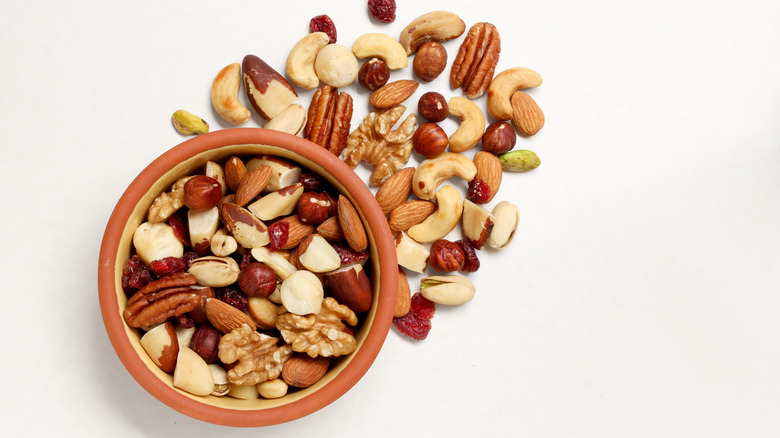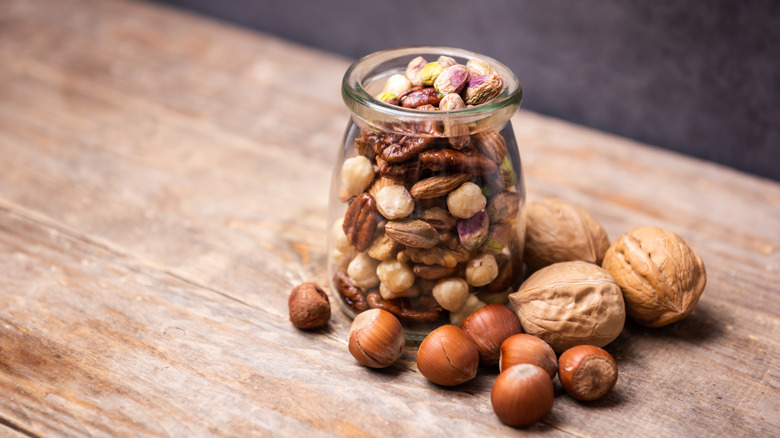Do Roasted Nuts Spoil Quicker Than Regular Ones?
Something magical happens when you roast nuts at home. Just a few minutes in the oven can turn a simple almond or peanut into a crispy, deeply flavorful snack with new layers of complexity. But, as with anything we cook, it's important to consider how the shelf life might be impacted.
Unfortunately, roasting nuts does shorten their shelf life. Nuts naturally contain oils, and when heated, their chemical structure changes. As the oils are released during roasting, they become more exposed to oxygen, speeding up the deterioration process of the nuts.
The shelf life of roasted nuts varies, with some lasting about one quarter of the time of their unroasted counterparts. Professionally packaged nuts tend to last longer. Blue Diamond Almonds, for example, lists a shelf life of between one to two years for its roasted products. In general, though, it's best to eat roasted nuts stored at room temperature within one to three months for the best experience.
Optimal storage for roasted nuts
To maximize freshness, nuts should be stored in airtight containers that are tightly packed and kept in a cool, dark space. The refrigerator or freezer is ideal, as the cold temperature will slow down spoilage. Nuts don't contain a lot of water, so their taste won't be affected, and there's no need to thaw them out before eating them. Just ensure the container is properly sealed and keep the nuts away from any strong-smelling foods like garlic or onion, as they tend to absorb surrounding odors.
Keep in mind that fattier nuts, such as Brazil nuts, will spoil more quickly, as will nuts that have been slivered or chopped. Rancid nuts shouldn't make you sick, but they won't taste good either. If they smell sour or the texture has softened, it's time to toss them. But don't worry — you can easily whip up a new batch of herb-roasted almonds or home-toasted pecans in no time.

